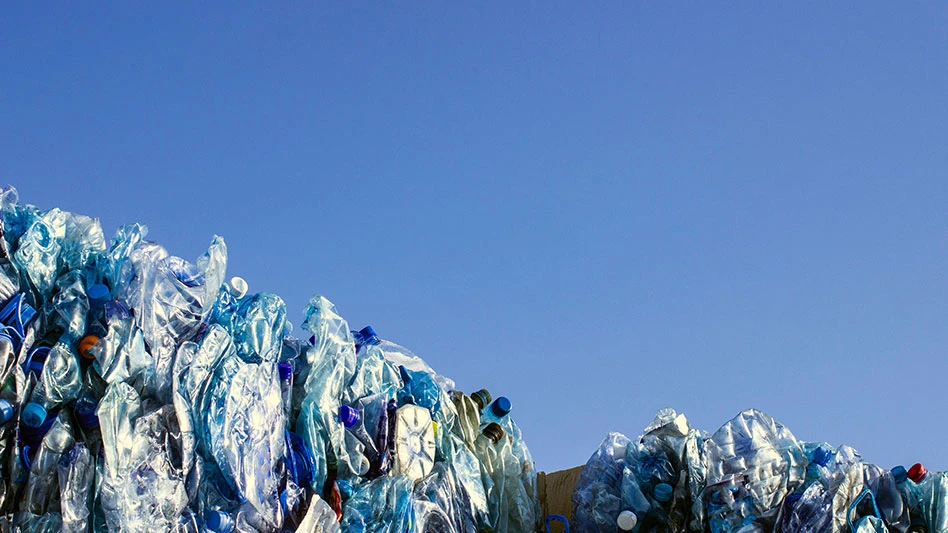
Torkhov | stock.adobe.com
EuRIC’s Plastics Recycling Branch (EPRB) has published a roadmap for the future of the European plastics recycling industry, which it says it experiencing extremely low demand for its products and unfair competition from countries that threaten circularity in Europe.
While EPRB’s roadmap notes that plastic recycling industry capacity in Europe has rapidly grown, increasing by more than 30 percent in the last three years, the growth rate decreased to 6 percent in 2023 because of “heavy market disruptions and price fluctuations.”
The roadmap also notes that demand for recycled plastics in Europe remains low given that virgin plastics often cost less and imports from non-EU countries are growing. “After some positive years for the industry, in 2023, recycled plastic prices fell by up to 50 percent for certain polymers, and still, prices remain low," the roadmap reads.
"Low demand for recycled plastics and cheap imports from third countries with low environmental and safety standards threaten the growth and competitiveness of Europe's plastic recycling industry,” EuRIC Secretary General Julia Ettinger says. “To protect it, we need decisive and bold police measures that will genuinely support one of Europe's key industries in the transition to a circular and carbon-neutral economy.”
EPRB has spelled out five measures that it says will support one of Europe’s key industries as it transitions to a circular and carbon-neutral economy:
- Quick implementation of pragmatic mandatory recycled content targets for plastics to stimulate demand for recycled materials and secure investments to scale recycling capacity. Given growing imports from outside of Europe, the group says strong mechanisms for verification and traceability of recycled polymers and the application of EU-equivalent rules are needed.
- Incentives, whether market or tax-based, are needed to bridge the gap between virgin and recycled plastics pricing, including lower value-added tax rates for products made of recycled plastics and eco-modulation of extended producer responsibility, or EPR, fees.
- Mandatory collection targets and design-for-recycling criteria to enhance the quantity and quality of inputs for recycling, which are key to delivering high-quality recycled materials. EPRB says that “enhancing recyclability is pivotal for effective recycling and for retaining the plastic material value in the economy.”
- Establishing harmonized EU End-of-Waste (EoW) criteria for plastics is crucial for better reintroducing high-quality recycled products into new products. EPRB says this approach could create a level playing field, eliminating market barriers and fostering trust in recycled materials. It also calls for the EU to encourage regional plastics circularity at the international level by promoting the adoption of binding mandatory recycled content measures as part of the negotiations on the international treaty on plastic pollution.
- Achieving the right balance between precautionary measures and responsible risk management to ensure continued plastic recycling in Europe. According to the roadmap, “There is a tendency at EU level to lower to zero or below the detection limits the concentration limits for numerous substances in products, regardless of their intended use and level of exposure. However, this hazard-based approach could jeopardize the circular economy, leading to material losses in the recycling loop, including downcycling, incineration or landfilling of this non-recyclable fraction, and threatening the economic viability of recycling process.”
The full report can be accessed here.
Latest from Recycling Today
- Phoenix Technologies closes Ohio rPET facility
- EPA selects 2 governments in Pennsylvania to receive recycling, waste grants
- NWRA Florida Chapter announces 2025 Legislative Champion Awards
- Goldman Sachs Research: Copper prices to decline in 2026
- Tomra opens London RVM showroom
- Ball Corp. makes European investment
- Harbor Logistics adds business development executive
- Emerald Packaging replaces more than 1M pounds of virgin plastic





